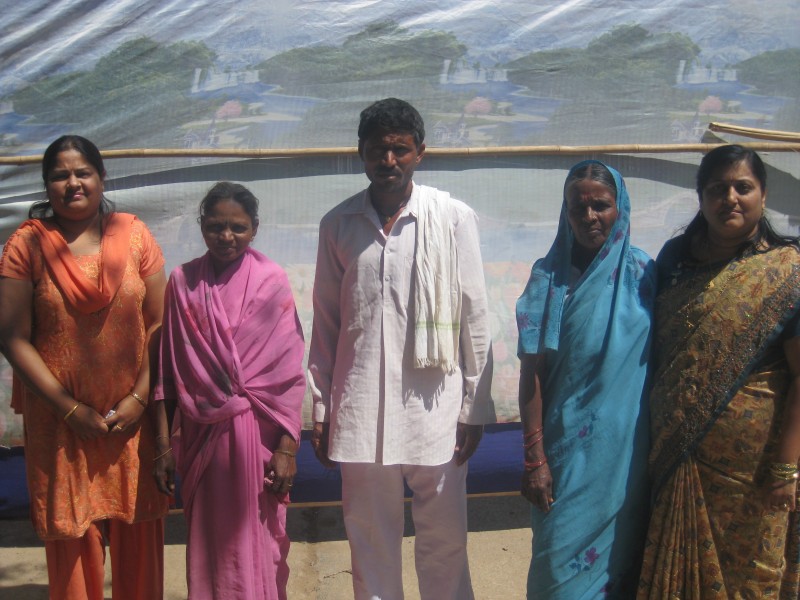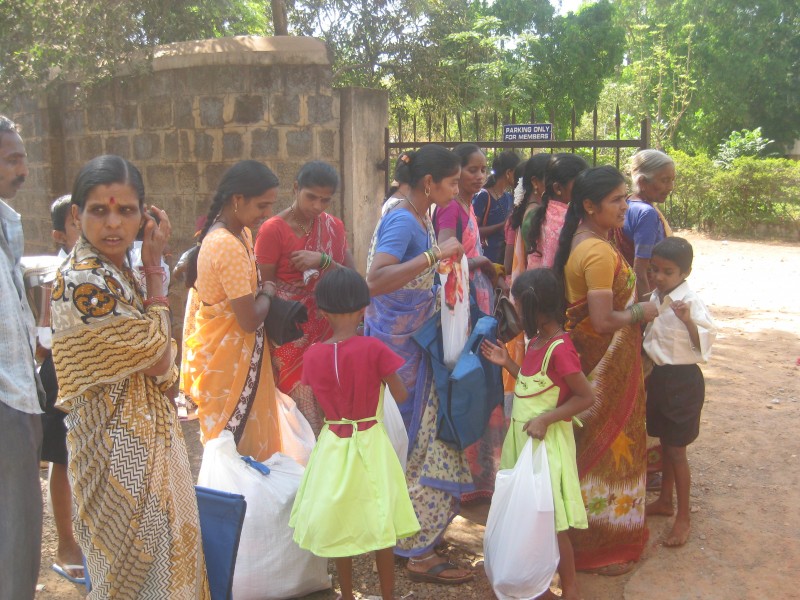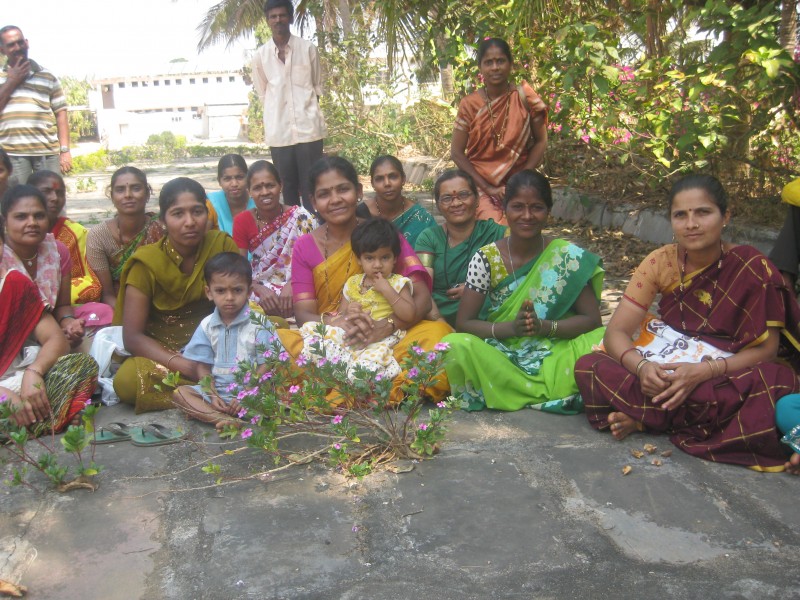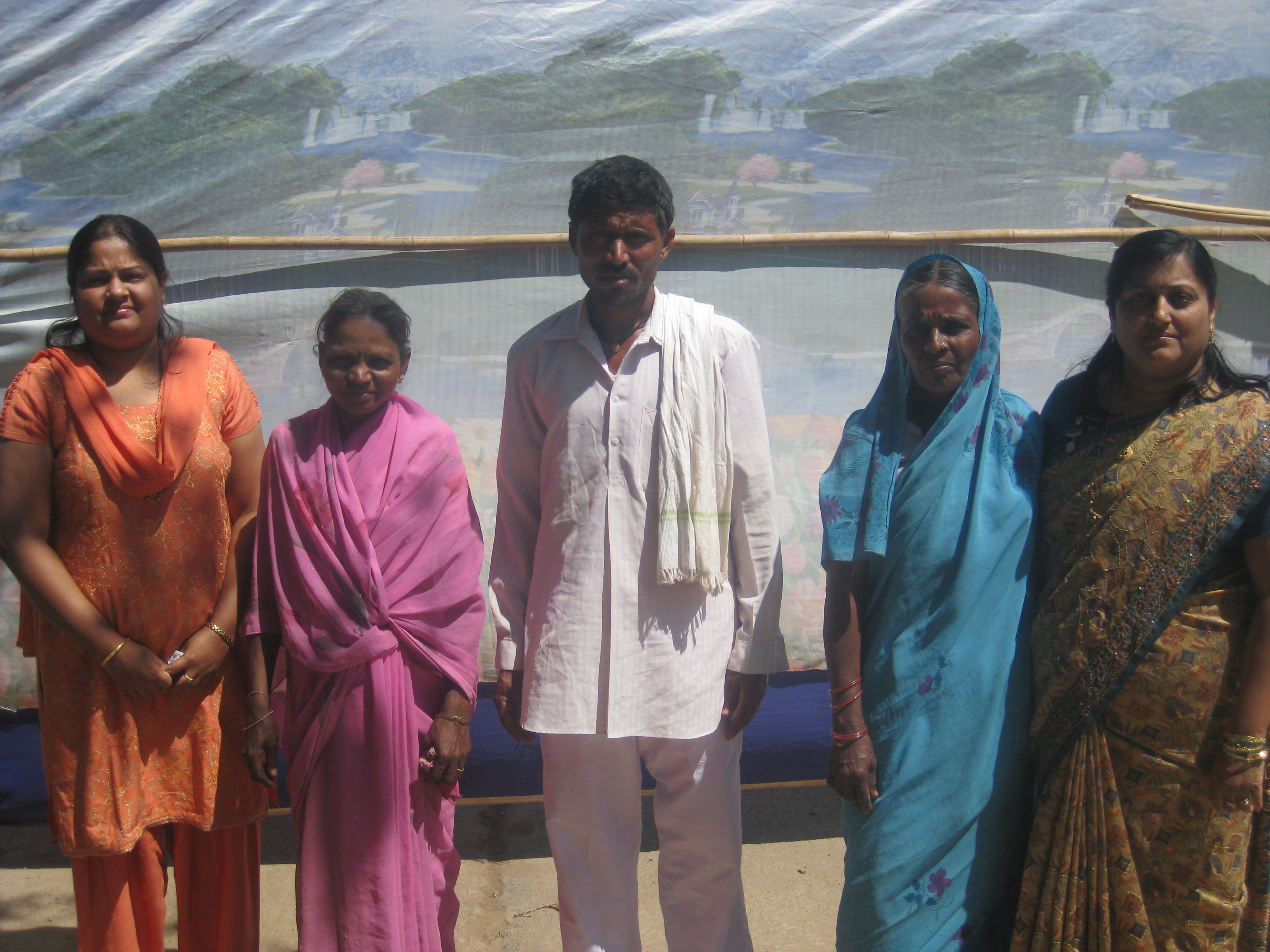As I mentioned in a previous blog, as a SCAW volunteer, there are many different roles you can play at a distribution — the photographer, the label puller, the counter, the organizer of the kids. One of my favourite roles of all would be the interviewer. Throughout the trip, we were responsible for interviewing a total of 25 parents/guardians of the children receiving the bedkit. It gave us a chance to not only learn whether or not the contents of the bedkit were of necessity to the children, but it also gave us a great opportunity to interact more with the parents and learn more about their lives and how they support their children.
Vagabondish is reader-supported. When you buy through links on our site, we may earn a small affiliate commission. Read our disclosure.

I had the opportunity to interview parents from Belgaum (where we distributed 1,000 bedkits), Bailhongal (500 bedkits) and Yellapur (100 bedkits). Some parents I talked to were married, however others were widowers. They all had approximately three to four children. In fact, if they had less than three children, it was often frowned upon by others in their community.
The majority rented their 10X10 home, which was typically one room. Renting a home costs on average 400 rupees per month (approximately $8.00). The men typically worked in factories or farms. The women were either maids, basket weavers or labourers. They each made no more than 90 rupees per day (less than $2.00).
The most difficult time of the year for them financially is rainy season, mainly because work isn’t available or accessible during this time. This season typically lasted two to three months, and since they weren’t able to work, they weren’t making money. In order to get by during this time, the parents collected food throughout the year and stored it to be used sparingly until they were able to get back to steady work.

Some of the saddest moments was listening to them talk about raising their children as single parents. One man I talked to lost his wife due to stomach problems — she went in for surgery one day, probably with a “quak”, and never made it back out. Another woman told me her husband committed suicide because he couldn’t handle the stress of not being able to support his family. I also spoke with a grandmother who was the primary caregiver of her daughter’s little girl because she wasn’t able to support her and the rest of her kids at the same time. All were heart retching stories that really put life into perspective for me.
Keep in mind, these families have absolutely nothing. The local organizations Sleeping Children Around the World works with (Rotary Club and Inner Wheel) visit the family’s homes in advance of the distribution and hand select the children who will receive the bedkits. The child doesn’t have their own mat to sleep on, in fact, they don’t even have their own pillow. The parents use it. Although the public school system serves the kids lunch for free, unless they bring their own plate to eat off of, they don’t receive a lunch. In addition, the school doesn’t pay for the child’s school supplies. The bedkit has a mat, a pillow, cups and saucers and schools supplies — necessities the parents now have, but didn’t before, to support their children.
To add to this, I asked the parents what would be the biggest dream they would have for their child and they all said to finish school and then get a job so they can help support the family. Unfortunately, although it is improving, the probability of these children going to college is quite low because it costs money to go, unlike elementary or high school, which is paid for by the government. So unless a child is sponsored or receives a scholarship, there’s not much opportunity for them for an education past grade 12, or how they like to call it 12th standard.

Sitting Down with SCAW Charity Families, India
So why does Sleeping Children Around the World support these children? Because every child, no matter who they are or how much money their family has, deserves a good night’s sleep and an opportunity to put their best foot forward each day while they are at school. Kids have wonderful imaginations, hopes and dreams and if we can help prepare them for the day ahead by providing them with something they need, then we’re giving them a chance at life.
After each interview, I had to take a few minutes to myself to process everything I learned. It’s not easy listening to these stories and then meeting the children that are affected by them. It can be quite emotional and sad. You can’t help but feel sorry for these people and want to do anything you can to help them, however the one thing that kept us going was seeing the beautiful smiling faces of these children and seeing the life that’s inside them. Hopefully we were able to represent “a moment” they’ll never forget.
In fact, call it karma, coincidence, fate, whatever, but our Mumbai tour guide, Amin, which I talked about earlier, received a bedkit when he was growing up in the orphanage, and look at him now. Now that’s a full circle moment.


